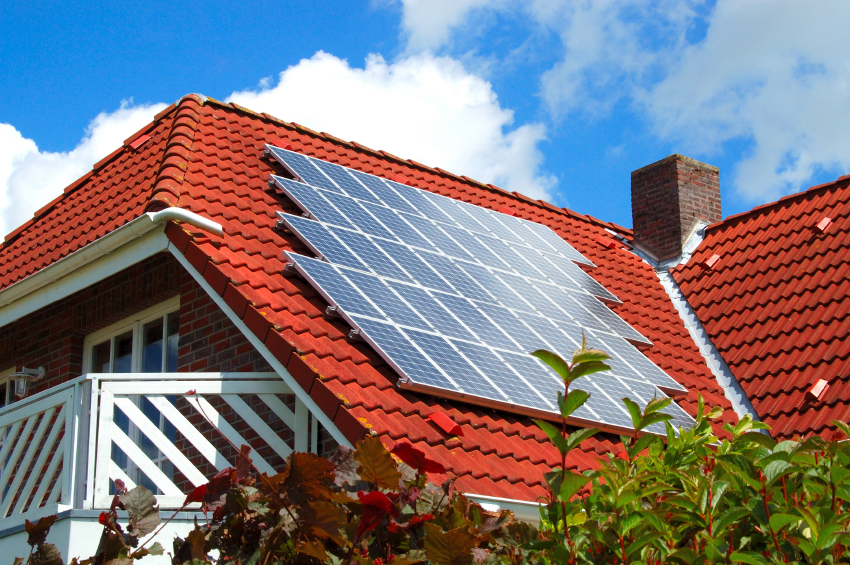Government
Nigeria to Generate $7.5bn From Grid Solar Energy

The Minister of Environment Hajiya Amina Mohammed has projected that the country can generate $7, 5 billion (about N15 trillion) from of grid solar energy.
This is even as the Coordinator of Nigerian-German Energy partnership, Dr. Jeremy Gaines, has lauded the Federal Government’s 13,000MW plans for electricity through solar energy over the next decades.
Speaking at the just held Conference of Parties on Climate Change, otherwise known as COP 21, in Paris, France, the minister said: “In particular, we plan to develop around 13,000 gigawatt of off-grid solar power, delivering energy access to the poorest communities in a cheaper and healthier manner with less emission.
We also plan to create a more efficient,lower carbon oil and gas sector. By ending gas flaring and using the gas for commercial purposes, including power generation, we could generate as much as $7.5bn worth of benefits.”
According to her, given the climate risks that Nigeria faces, this is the only way in which the government’s ambitious Agriculture Transformation Agenda can be delivered
“Nigeria’s ambitious INDCs aim at reducing emissions by 20 per cent by the year 2030 with support from the international community. This will support the restructuring of the economy in a way that will facilitate inclusive growth with vast opportunities to diversify the energy mix, with emphasis on renewable energy and efficient gas power,” she added. However, Dr. Gaines commended the government for the ambitious, Intended Nationally Determined Contributions, INDCs, which have been set for Nigeria.
He further added that promoting renewable energy as a primary sustainable development strategy for socio-economic inclusion that is good for the global environment, but is even better for ordinary Nigerians, while at the same time simply making business sense, the so called triple bottom line.
“A massive roll-out of on and off-grid solar power is one of the areas that the Nigerian German Energy Partnership and Germany’s GIZ (through its Nigerian Energy Support Plan) has consistently advocated.
“Through GIZ the German government has been busy supporting Nigeria with getting all the homework done to enable a strong rise in off-grid solar PV systems.
The Paris climate summit has put longer-term financing mechanisms in place to assist here. Such a roll-out is especially meaningful if integrated with the deployment of agricultural facilities (irrigation pumps, etc.) as this could be a key to unlocking socio-economic growth in particular in the North of the country.
“It is probably too early to set concrete targets for the volume of off-grid solar until the various technical and financing challenges have been overcome. But the Minister’s determination to push the development of such systems shows the administration’s welcome resolve to embark down this path,” he added.
The managing director, Zaphnaah Nigeria Limited, Mr. Debo Adefolaju, added that, “It can be done, but a lot of things are attached to it.
“Is not just about clearing land and installations or putting the panels on a roof, it has to be attached to industries for it to be worthwhile.
“Meaning, either we are going to be using it for irrigation or we are going to set-up a plant to be manufacturing solar panels or batteries nearby, so that for the purpose of illustration, everything we are doing should be gear into employing our youth.
“Everything will have a value chain, either the installation; we have to train our boy and girls to install, to do the wiring, to maintain the system after it has been installed. As far as am concern it all about employment,” he stated.
He further said “Nigeria is blessed with everything. We get between 12 and 14 hours of sunlight, our business should be first in the six geopolitical zone to start manufacturing solar panels.” NIMASA is doing it in Nigeria, we also need to be producing battery in Country, we cannot afford to be importing everything.”
“We need to get people who will be willing to set factory. In Ghana, such factories exist, if we can bring those guys here to come and work with our boys and girls here, and start manufacturing solar panels, wire, and battery and have a quality in place to recycle battery when they run down and be able to adopt a culture of maintenance.”
Vanguard